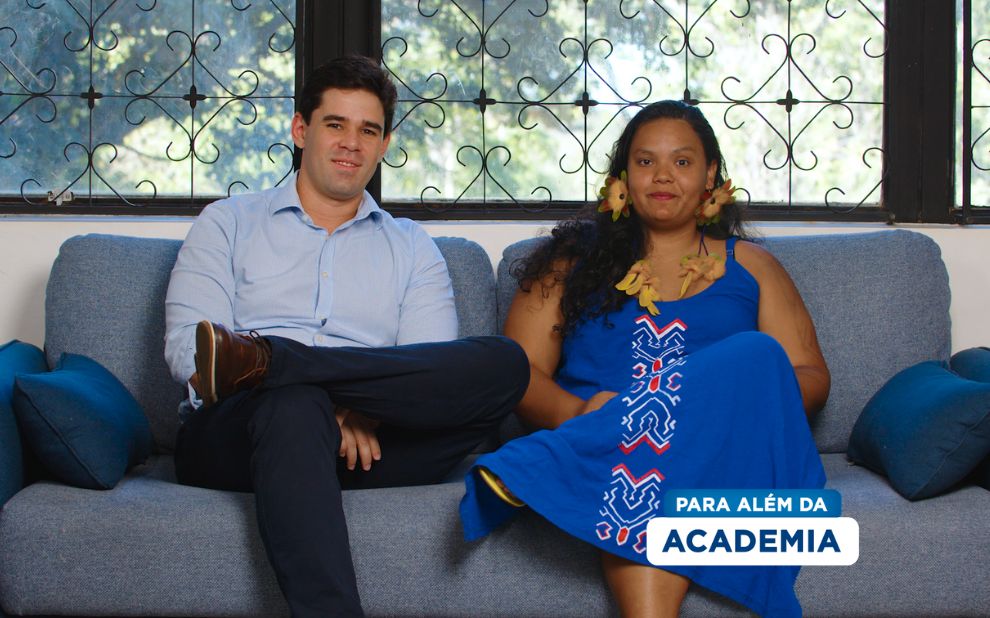Master’s degree: See how it’s possible to combine work and study during the course
“I use a lot of organization and scheduling to balance my different activities,” says Wauana Manchiner, a student on FGV EPPG’s Public Policy and Government Master’s Program

In order to reconcile work and study during your master’s course, it is essential to adopt efficient strategies that allow you to manage your time and responsibilities properly. This is one of the main takeaways from an FGV News interview with Bernardo Buta, a professor on the Public Policy and Government Master’s Program at the School of Public Policy and Government (FGV EPPG), and Wauana Manchiner, a student on the program.
Personal organization, setting specific times to dedicate to studies and work, and avoiding distractions and procrastination are some ways that make it easier to balance study and work. Through planning, organization and discipline, you can successfully manage your master’s degree and your professional life.
It was in this context that Wauana Manchiner was looking for a course that offered flexible timetable options, such as evening or weekend classes. This was fundamental for her to be able to achieve her academic and professional goals satisfactorily.
“The classes take place every two weeks on Fridays and Saturdays, which makes it easier for students who work,” says Professor Buta.
Read on to see the full interview:
How is it possible to work and do a master’s degree?
Wauana Manchineri – I’m currently a project coordinator for an organization called Matpha and a project technician for the Association of Indigenous Organizations in the Brazilian Amazon (COIAB). I’m a service provider who works with two indigenous organizations and I’m doing a master’s degree. The course involves classes in different subjects, research and compulsory reading. So, I use a lot of organization and scheduling to balance my different activities.
Bernardo Buta – The classes are held every two weeks, on Fridays and Saturdays, which makes things easier for students who work. So, how do you create a study routine? To create any routine, you need to start and define your timetable very well. Taking the first step is fundamental. After that it becomes natural.
Wauana Manchiner – The school’s own calendar is helpful. At the beginning of each semester, all the content that will be studied outside the classes is laid out. We need to organize our routine so that we don’t get behind with our reading and to ensure that we can put this knowledge down on paper. Later, we will write articles, which will be published. After all, the idea is to suggest possible public policies to be implemented. Our study routine is very important to make sure that we are really grounded when we write our papers.
How can you attend conferences, and why?
Bernardo Buta – Conferences are fundamental, because this is when we share and disseminate knowledge. You can test what you’ve done, receive criticism and suggestions, recommendations for improvements to your work and increase the impact of your research. In this way, you present the results of your research to the academic community at these events.
Wauana Manchiner – This is a school of public policy and all the work done is aimed at producing knowledge. The more democratized access to this information and these studies is, the closer we can get to the decision makers.
Is it possible to add professional content to academic life?
Bernardo Buta – The master’s degree gives you some skills that are highly valued in the professional world and it’s interesting that our master’s degree is very applicable, because the research is very applicable.
Wauana Manchiner – I’ve already used a lot of the knowledge I’ve learned to write projects and propose research aimed at public policy management. The focus is on understanding indigenous leadership, with the goal of democratizing this knowledge and directing it toward these groups.
How has the knowledge you acquired on the program been applied in practice? Tell us a little about your experience.
Wauana Manchiner – We are currently carrying out a survey with the aim of measuring the level of environmental health literacy of indigenous populations. This is being done in partnership with COIAB. It’s a way of combining my master’s degree with my professional work.
Furthermore, when we propose any project, a study is carried out beforehand to provide a basis. When I get to my work, I heavily use the mechanisms and tools that we learned about on the master’s program. In my case, I use them in project management and for impact assessments.
How do you evaluate an activity? How do you evaluate the impact of this activity? There’s a whole framework of mechanisms, applications and processes that we explore on the master’s program, which we can take into our professional and even personal lives.
To find out more about FGV EPPG’s Master’s Program, click here.
This article is part of our “Beyond Academia” series. See the previous article in the series below:
Leia também
